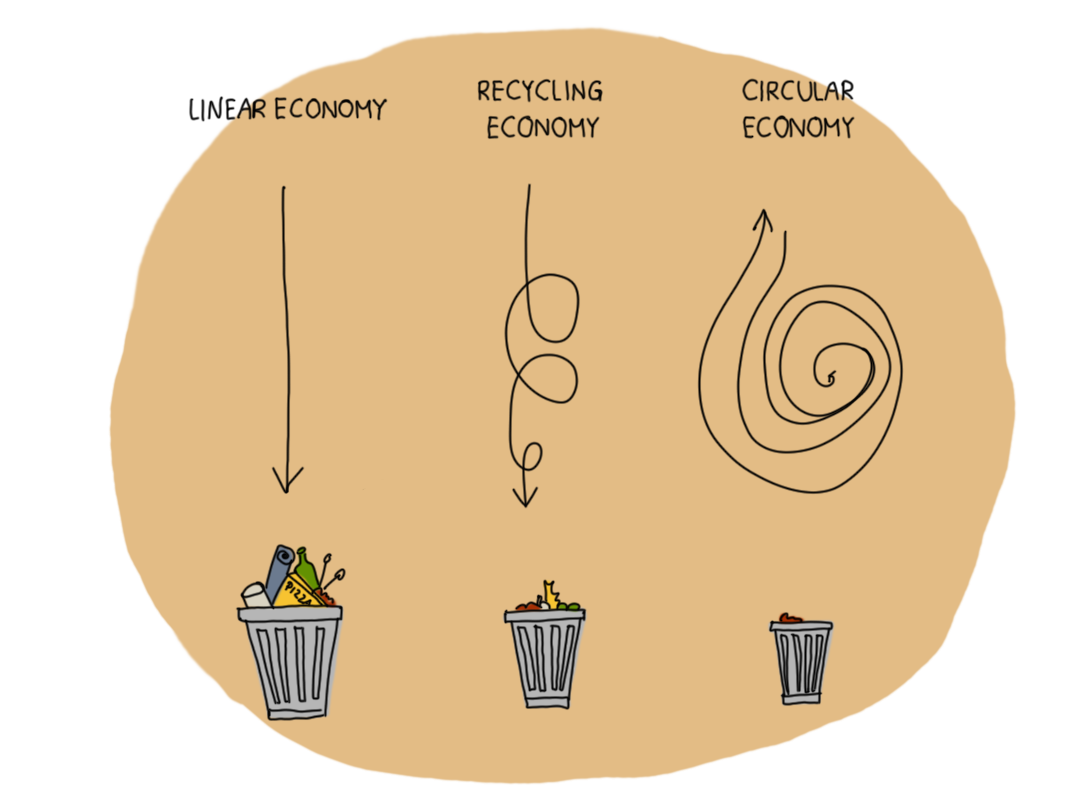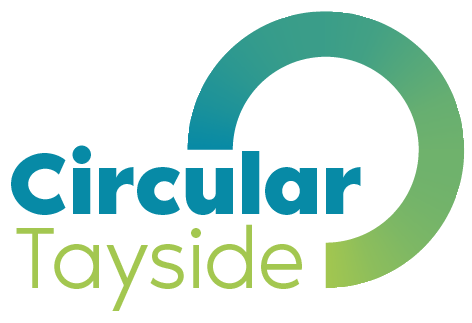
Our current materials economy is linear: materials are extracted and mined from the Earth and extracted materials are used to make things. The created items are used, sometimes quite briefly, and ultimately disposed of. This process is then repeated infinitely.
The problem is that our planet’s resources and limits are finite.
Continuing this linear economy model indefinitely on a finite planet is contributing significantly to multiple planetary crises. The most important one is human-made climate change. Others include deforestation, resource depletion, habitat destruction and resulting biodiversity loss, as well as environmental pollution of air, water and land.
This highlights the need to transition to a circular model. The circular economy model is regenerative by design, eliminates the concept of waste and values the built environment stocks already created.
The Scottish Government defines a Circular Economy as follows:
"A circular economy is one in which resources are kept in use for as long as possible. It can benefit the environment, by cutting waste and carbon emissions; the economy, by improving productivity and opening up new markets; and communities, by providing local employment opportunities."
Circular Tayside Charter

The Circular Tayside Charter provides business goals for your specific sector of industry aiming to improve your green scheme and acknowledge your efforts with environmental credentials.
What is the Charter?
The Circular Economy Assessment programme designed by the Circular Tayside Ambassadors in collaboration Dundee and Angus Chamber of Commerce, Perthshire Chamber of Commerce, Zero Waste Scotland to benchmark your performance and set personal goals for your business
Specific improvements can include:
- Cost savings through more efficient resource use and reusing, repairing, refurbishing products and materials.
- Implementation of new business models.
- Development of new product lines, to extract value from waste which cannot be eliminated, by-products and co-products.
- Greater customer satisfaction building brand loyalty and providing new products or services
- Reduced supply chain risks through less exposure to volatile commodity prices and resource supply risks
Zero Waste Scotland
Expert one-to-one support for businesses in Scotland to help develop a more circular economy.
Our Circular Economy Business Support Service delivers tailored, expert, one-to-one consultancy directly to small and medium sized businesses across all sectors in Scotland.
It’s designed to help companies explore more circular ways of doing business which can result in resource efficiencies, improved profitability, higher quality products, increased customer base and alternative supply chains for your business.
Circular examples collection
Below you can find some inspirational projects to see circular economy in action. For more examples: Explore the Ellen Macarthur Foundation's Circular Economy
Great ideas
Some of the most interesting innovations in our economy are happening at the interface of material science, business models and digital technologies: from 'mushroom plastic' packaging, dissolvable stitches improving clothing recycling, to reducing food waste and improving profits and more.
Climate and biodiversity
Almost half of carbon emissions come from industry, agriculture, and land use, and more than 90% of biodiversity loss is due to the extraction and processing of natural resources. As this collection of case studies demonstrates, the circular economy is a key tool in addressing these two huge global challenges.
Multinational companies
Philips, Renault, H&M Group and more. The companies found in this collection have all committed to following a circular economy pathway and have begun to offer products and services that support the transition
The Circular Design Guide
Activities to help you understand, define, make, and release circular innovations. Dive in wherever makes most sense for you and your team.
